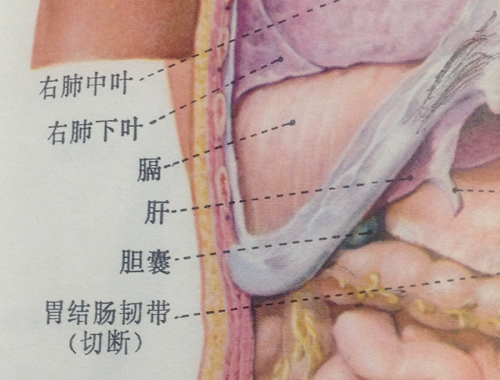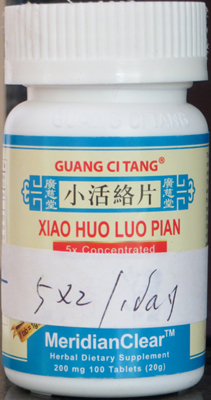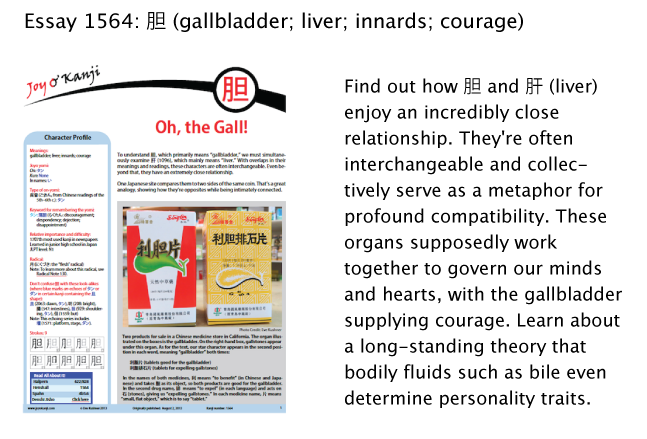Things I Learned from the Gallbladder
A yoga teacher used to annoy me to no end when he asked us to shift our kidneys to the right or left. How in the world could we do this? I think it was all in the name of heightening body awareness, but something about the lesson was lost on me. My mind and kidneys have no mental connection whatsoever.
I'm just as unaware of any organ that doesn't cause me pain from time to time. In particular, I was completely oblivious to the gallbladder until I wrote essay 1564 on 胆, which came out today. I couldn't have located that organ on an anatomical chart, and I didn't know what function it served. I particularly didn't feel that my mind and gallbladder had any kind of relationship.

Photo Credit: Eve Kushner
In a Chinese book, 肝 indicates the liver, and the word starting with 胆 points to the gallbladder.
But from the perspective of Traditional Chinese Medicine, our gallbladders control our decision making and are the source of courage! Such ideas about the gallbladder have filtered into all sorts of Japanese words containing 胆, such as these:
胆が小さい (きもがちいさい: cowardly) courage + small
胆が太い (きもがふとい: bold; daring; plucky) courage + thick, large, fat
It turns out that courage comes in small and large sizes, much like cups of coffee. And as you chill courage, it shrinks, or so it seems:
胆を冷やす (きもをひやす: to be frightened) courage + to chill
I've learned that fear is a chilling emotion. In fact, the third definition of “chill” in one dictionary is “a feeling of sudden fear, anxiety, or alarm.” English speakers say that a gory crime is chilling, committed by a cold-blooded person no less. When you're afraid, goosebumps tend to form, and you may have cold feet, at least figuratively. My proofreader says that extreme surprise or fright makes one feel cold inside. I suppose I have been too disconnected from my body to observe such a thing.
I'd like to share other things I learned from writing the 胆 essay, including this great word from a sample sentence:
単刀直入 (たんとうちょくにゅう: going right to the point; frankness) single + sword + direct + to go in
I have a reputation for being a straight talker and getting right to the point. In English we call this "blunt," but it appears to be the opposite in Japan (and China, where this yojijukugo originated). After all, the expression contains a sharp sword! According to Gogen, 単刀直入 comes from a situation in which someone charged at a group of enemies with just one sword. Somehow, 単刀直入 has come to represent something positive in Japan. It's the opposite of beating around the bush and means plunging into a topic. I know the Japanese generally prefer it when people are indirect, so I just assumed that frankness would be an affront and would feel like a sword plunged into the chest, but my proofreader assures me that that's not what 単刀直入 implies! Whew!
I found out from writing about a photo of Chinese gallbladder medicine that 片 in Chinese can mean “small, flat object,” which is to say “tablet.” I've seen that hanzi over and over on bottles of pills that my acupuncturist gives me, and it never made sense, given that 片 primarily means "fragment" or "one of two" in Japanese. (It's also Radical 91, the "split wood (right half)" radical.) But Halpern says that 片 can mean "(flat, thin) piece," so that's consistent with the Chinese. I just never would have associated that definition with a pill.

Photo Credit: Eve Kushner
Chinese pills with 片 at the end of the name.
I now know that the Japanese (and Chinese) perceive the gallbladder and liver as having such a close relationship that 胆 and 肝 (liver) appear together in expressions such as this one:
肝胆相照らす or 肝胆相照す (かんたんあいてらす: to be profoundly compatible; be inseparable; be so close as to reveal to each other the bottom of one’s heart)
Using this term, one can say things such as this:
二人は肝胆相照らす仲だ。
They are inseparable friends.
二人 (ふたり: 2 people);
仲 (なか: relationship)
English speakers say that certain things "take guts" and that one ought to "have a heart" so as to treat others compassionately. We do talk about having "unmitigated gall" and about being "bilious," but it would never occur to us to use "liver and gallbladder" figuratively in the context of friendship.
From the essay, I found out quite a bit about how the liver and gallbladder function and how the Japanese often treat 胆 and 肝 as though they're interchangeable.
Another organ came into the picture, as well:
肝心要 or 肝腎要 (かんじんかなめ: very important)
Whereas 肝心要, breaks down as liver + heart + important, 肝腎要 is liver + kidney + important.
The kidney again! Now I need to consider not only where my kidney might be but also how it's getting along with my gallbladder!
Here's a preview of the new essay:

Have a great weekend!

Comments